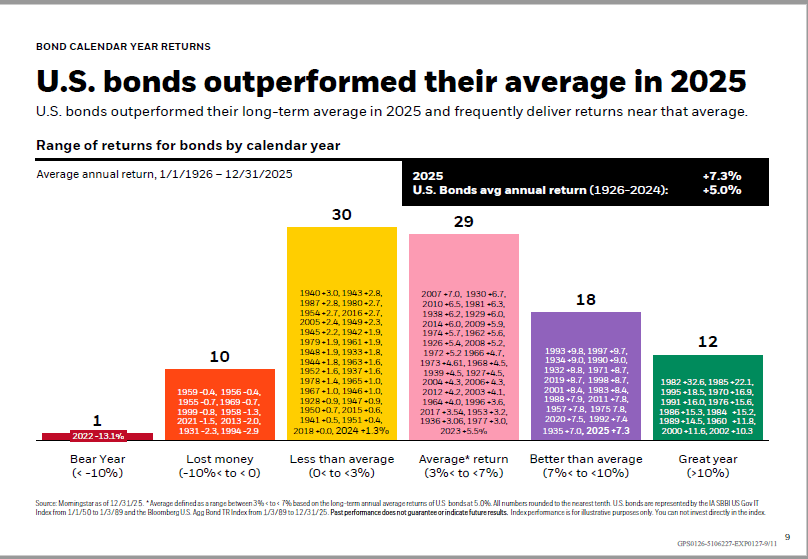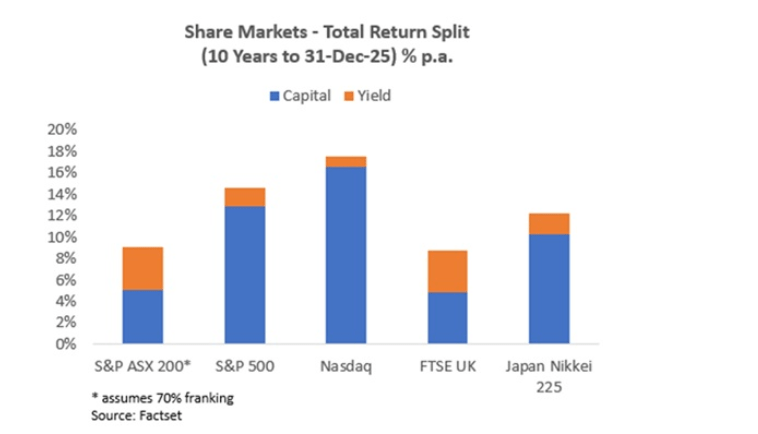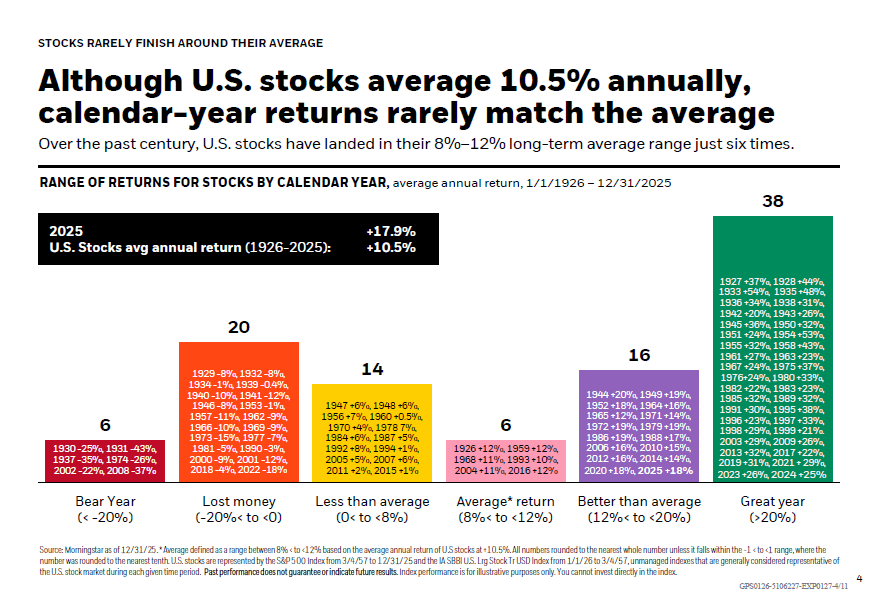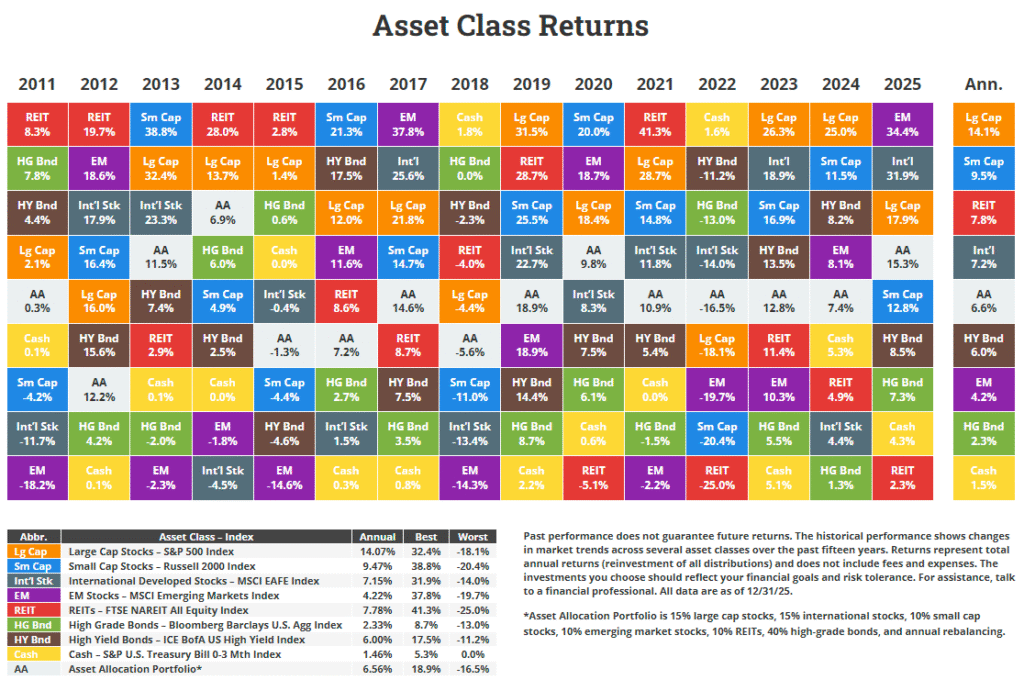U.S. investors have generally low allocation to foreign equities for a variety of reasons. For example, it may be due to their advisors recommending that they hold most of their assets in U.S. stocks. Others may feel comfortable investing in firms that they know about and can even buy the firms’ products in the local grocery store. This can also be called as ‘home bias” by which investors prefer their home over some unknown company in far away land. Some others may invest mainly in U.S. stocks due to patriotism or in the mistaken belief all the best things in the world today exist only in the US.
I recently came across an article on international diversification that made some interesting arguments on the need for foreign stocks. From the article:
On average, 44% of the revenues of these 50 companies are derived from outside the U.S. Even if surprising, this is actually a conservative figure inasmuch as some companies only list “North American” revenues, which would include Mexico and Canada, as opposed to U.S. revenues. Other companies, like AT&T, do not state their foreign revenues, so AT&T is counted in the exercise as zero, despite having significant non-U.S. activities. One piece of information AT&T does provide is that it has $26 billion of foreign currency swaps (notional value) on its balance sheet, which may be compared with $129 billion of total revenues – presumably, its non-U.S. revenue is not trivial.
The largest 100 companies in the S&P 500 Index, 20% of the list by number, comprise 61% of the market value; their average proportion of foreign revenues is 39%. There is a different way to calculate this: not on a simple average basis for each company, but weighted by each company’s market value; in this instance the average value weighted foreign revenue contribution is 26%. If weighted, instead, by asset value, the figure might well be higher.
But those fine points don’t matter, do they? We now know that investors, whether major institutions that, effectively, advise themselves, as well as individuals who are advised by institutions, are being told to allocate roughly 30% to 40% of their stock investments, which might otherwise be in the S&P 500 or essentially similar indexes, to non-U.S. companies. Yet, by holding the S&P 500 those investors are already fully allocated internationally. Say what???
One of the paradoxes here is that the major U.S. companies are quite globally diversified in terms of sources of business, if anyone would care to read their annual or quarterly reports. Historians will one day be baffled as to how well-educated people were convinced to invest billions, and perhaps hundreds of billions of dollars, in companies of which they know nothing, often located in places they would be afraid to visit, all in search of diversification that was already achieved by the American firms that were being sold to fund the international diversification effort in the first place.(emphasis mine)
Source: Under the Hood: What’sin Your Index? (An Ongoing Series), Horizontal Kinetics
The above argument is wrong on many levels. There are many reasons for US investors to invest in foreign companies. In fact, it would be foolish to not invest in foreign equities. Here are a few reasons investing in foreign companies makes sense for US investors :
- While many US firms are global multi-nationals and generate a substantial portion of their earnings from outside the US, they still cannot compete effectively with domestic firms of individual countries.For example, Google is not the top search engine in Russia as Russians prefer their own home-grown search engine called Yandex(YNDX). Similarly China has hundreds of domestic firms which are leaders in their respective fields. Companies such as Xiaomi, Alibaba(BABA) are some examples. Hence in order to profit from the growth of these companies it is necessary to invest in them. I wrote an article on this topic last year which can be found here.
- Though US firms generate billions in profits from overseas it does not mean they share the earnings with investors. US firms are notorious for having low payout ratios and many prefer to buy back their own shares rather than pay it to shareholders in the form of cold hard cash. Hence an income investor can earn higher income from investing in foreign firms than US firms.
- Most well-respected foreign firms have plenty of information on their business and financial activities online usually in English too. Hence the idea that well-educated investors are in the dark by investing in these firms is ridiculous to say the least.
- Companies that are equal to or even better than US firms exist in other developed countries. For example, banks in Scandinavian countries such as Norway and Sweden and banks in Canada are equal to if not better than in some aspects than their American peers.
- In summary, US investors should not limit themselves to American multinationals in order to achieve international diversification. In order to benefit from growth in emerging, frontier and other developed markets, investing in the domestic firms of these markets is a wise strategy for investors.
Disclosure: No Positions



